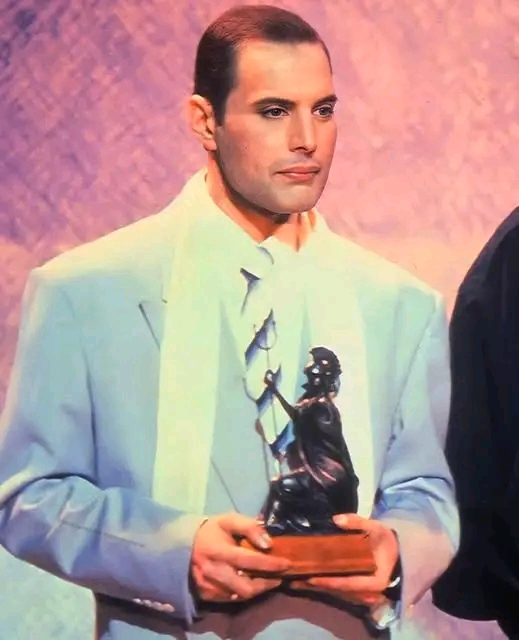It was Freddie Mercury’s final public appearance. On February 18, 1990, Queen received the Outstanding Contribution to British Music Award at the Brit Awards. Unlike in the past, Freddie didn’t step to the front. Brian May spoke on behalf of the band, while Mercury quietly held the award, his face heavily made up to hide the signs of illness. Rumors about his health had been circulating for years, with the media speculating about AIDS at a time when the disease was cruelly stigmatized.
Freddie had lost weight, appeared pale and weak, and had retreated from public life. Queen avoided interviews and live tours after 1986’s Magic Tour, keeping his diagnosis private. That night, dressed in a light blue suit to conceal his frailty, he barely smiled. After May’s speech, Freddie simply said, “Thank you. Good night.” It was his last message to the world.
After the ceremony, photos captured him with fellow stars like David Gilmour, Liza Minnelli, and George Michael—who would later honor him at the 1992 tribute concert. In the following months, he lived reclusively in London, recording his final songs despite worsening health. In November 1991, he confirmed publicly that he had AIDS. Just 24 hours later, on November 24, 1991, Freddie Mercury died of bronchopneumonia at age 45.
His funeral was private, and the resting place of his ashes remains unknown. Freddie’s legacy lived on through The Mercury Phoenix Trust and the Wembley tribute concert that raised global awareness of AIDS. That brief, quiet “Thank you” at the Brit Awards remains one of the most poignant moments in rock history—a final bow from one of music’s greatest voices.










